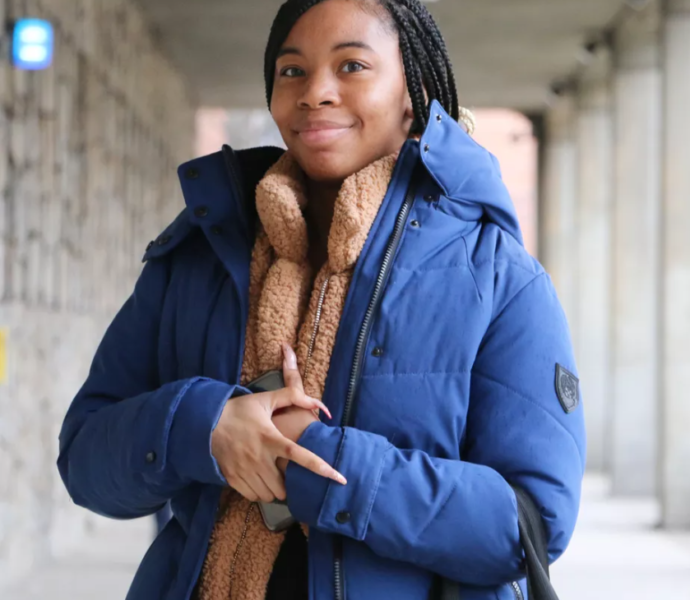Her Newark high school helped get her to college. Can it keep her on track during the pandemic?
ByPatrick Wall
Before the coronavirus swept in, Samani Ford had a trusted system for achieving her goals: dream, plan, and execute.
A freshman at Rutgers University-Newark, her dream is to become a genetic counselor and help people navigate the health issues her extended family has faced, including cancer and bipolar disorder. Her plan to accomplish that dream is to excel at Rutgers, then earn a master’s degree and maybe a doctorate.
By the start of her second semester in January, Ford was in full execution mode: She fine tuned a routine for making the 25-minute drive from her mother’s home in Irvington to campus, attending class and completing her assignments there, then returning home to eat and sleep.
But on March 10, the coronavirus forced Rutgers to cancel classes at its three campuses and send its 70,000 students home early for spring break. A week later, the university closed campuses for the rest of the school year.
The changes turned Ford’s life upside down. Now she was stuck in the basement of her crowded house trying to follow choppy video lectures. She found a job at a local grocery store, where she wore a mask and gloves hoping she wouldn’t carry the virus home. She communicated with friends and professors only through devices. Suddenly, she questioned whether she could maintain her hard-won momentum towards a degree — and her dreams.
“I was in a good position before the coronavirus happened,” she said. Then the pandemic scattered the pages of her college playbook, leaving her plans in disarray. “I kind of left everything in the wind.”
College freshmen such as Ford are especially vulnerable to the coronavirus’ disruptions. Even in normal times, the first year is a roller coaster when recent high schoolers must quickly forge a sense of belonging and self-confidence on campus in order to thrive, said Vincent Tinto, a professor emeritus at Syracuse University. “It lays the groundwork for subsequent success,” he said.
When freshmen stumble, the results can be disastrous. Nationwide, more than a quarter of first-year college students — and a third of black students — don’t return for their second year.
Even if students do persist past the first year, their odds of graduating remain alarmingly low. Nearly 40% of students at four-year colleges and universities fail to graduate within six years, leaving many saddled with debt and shut out of lucrative careers. Low-income students, including many in Newark, face the greatest risk of being dragged down — by financial hardships, family obligations, or K-12 schooling that did not prepare them. Students from families in the bottom income quartile are less than half as likely as students in the top quartile to obtain bachelor’s degrees within six years.
Those dismal college completion rates have put pressure on high schools to better equip students for college, and on higher-education institutions to guide their students to degrees. A small number of organizations have tried to attack the problem from both ends. One of them is KIPP, the national charter school network where Ford attended middle and high school. It has developed an elaborate system called “KIPP Through College” designed to steer students onto campuses then shepherd them across the graduation finish line.
The system is expensive and labor-intensive, and even with it many KIPP alumni leave college without degrees. Still, the approach is catching on with some districts, including Newark Public Schools. The district has sent some of its counselors to study KIPP’s college-advising methods, and the superintendent has promised to pair each student with a mentor who will stick with them through college.
Read the full article here
